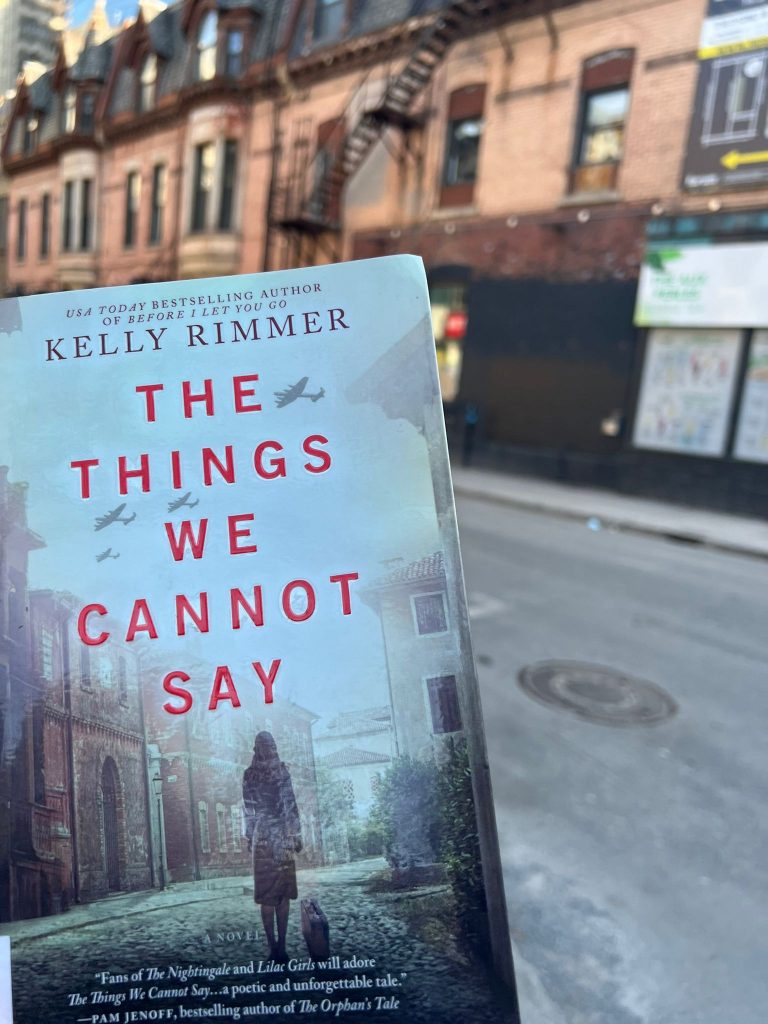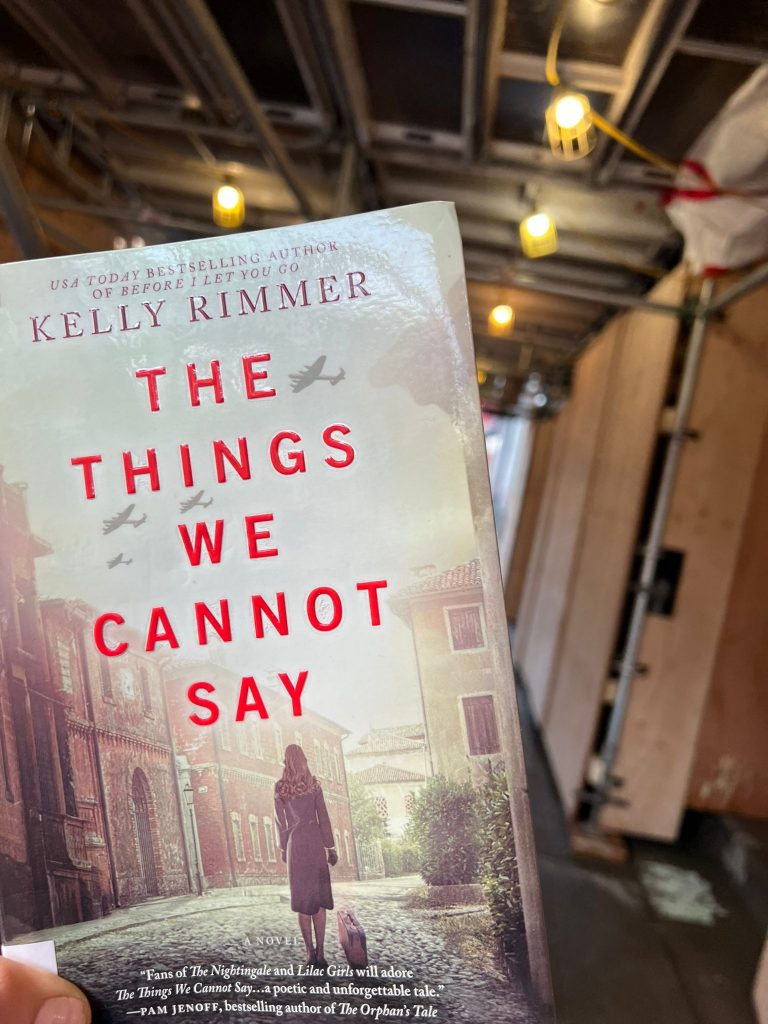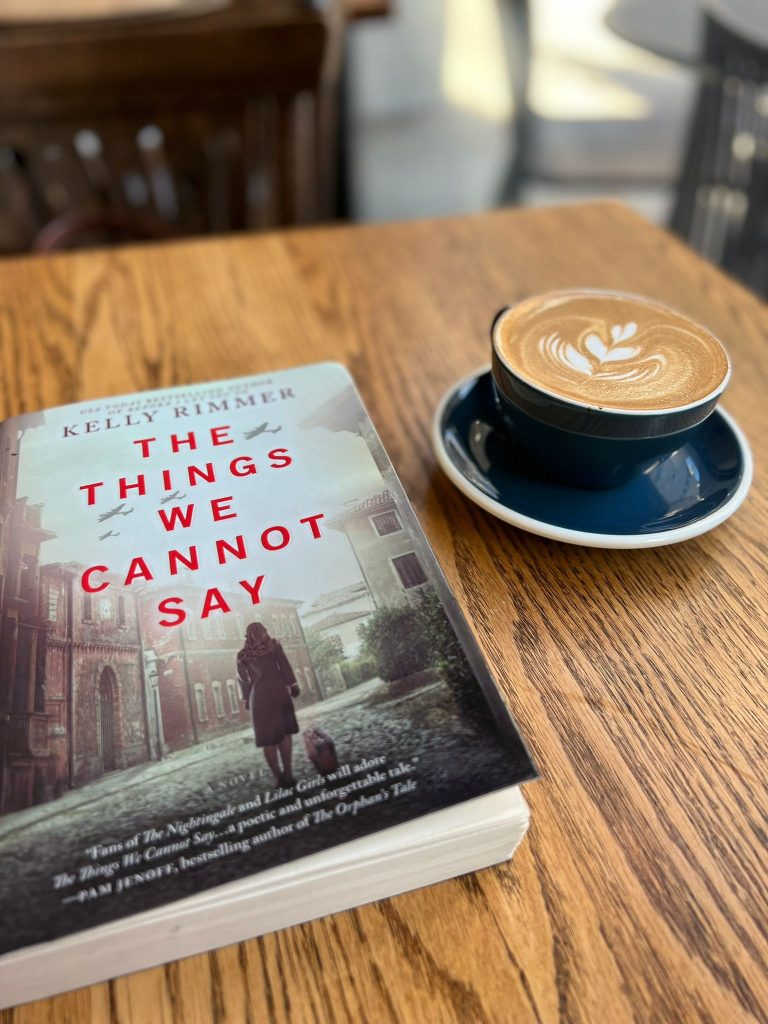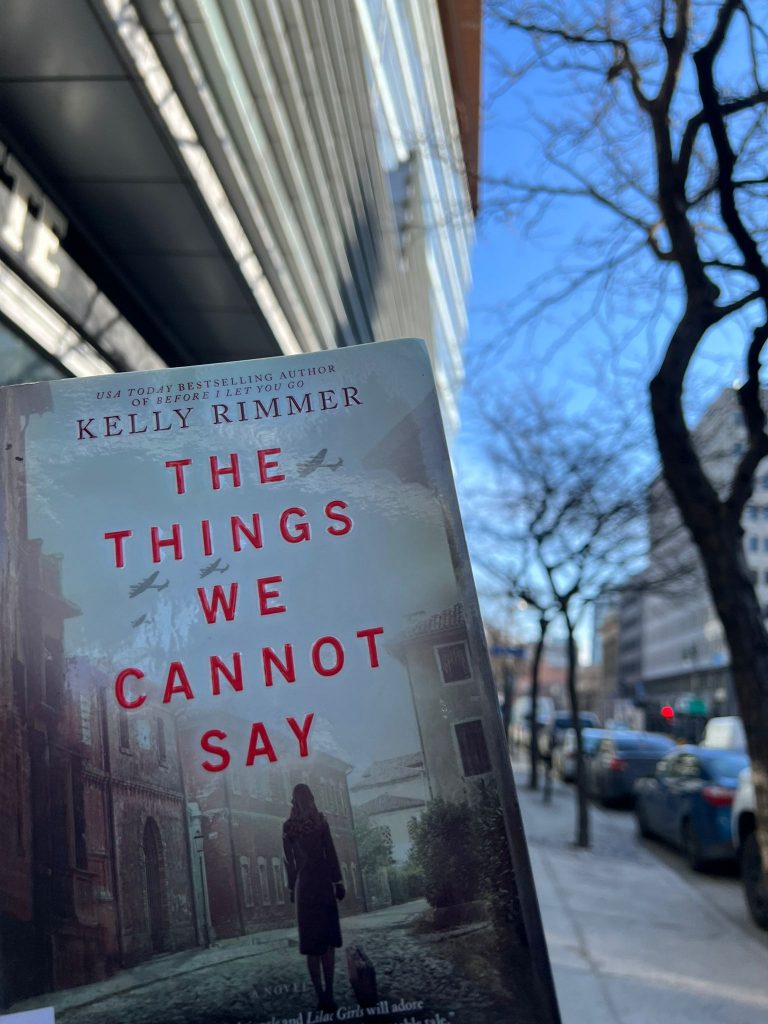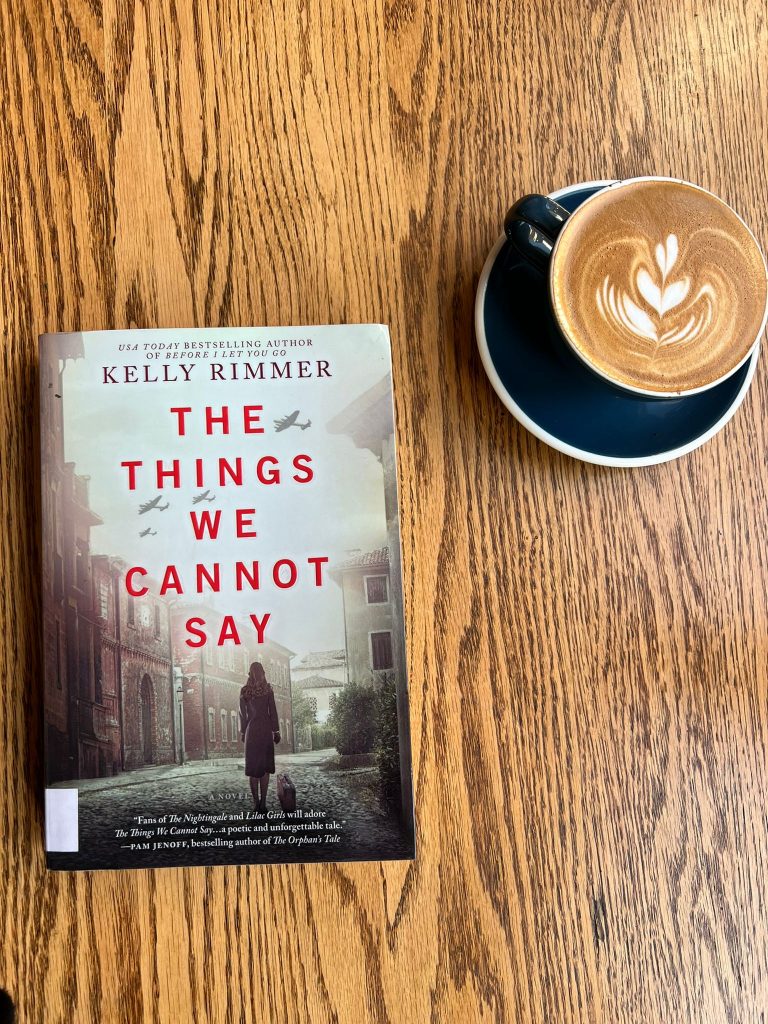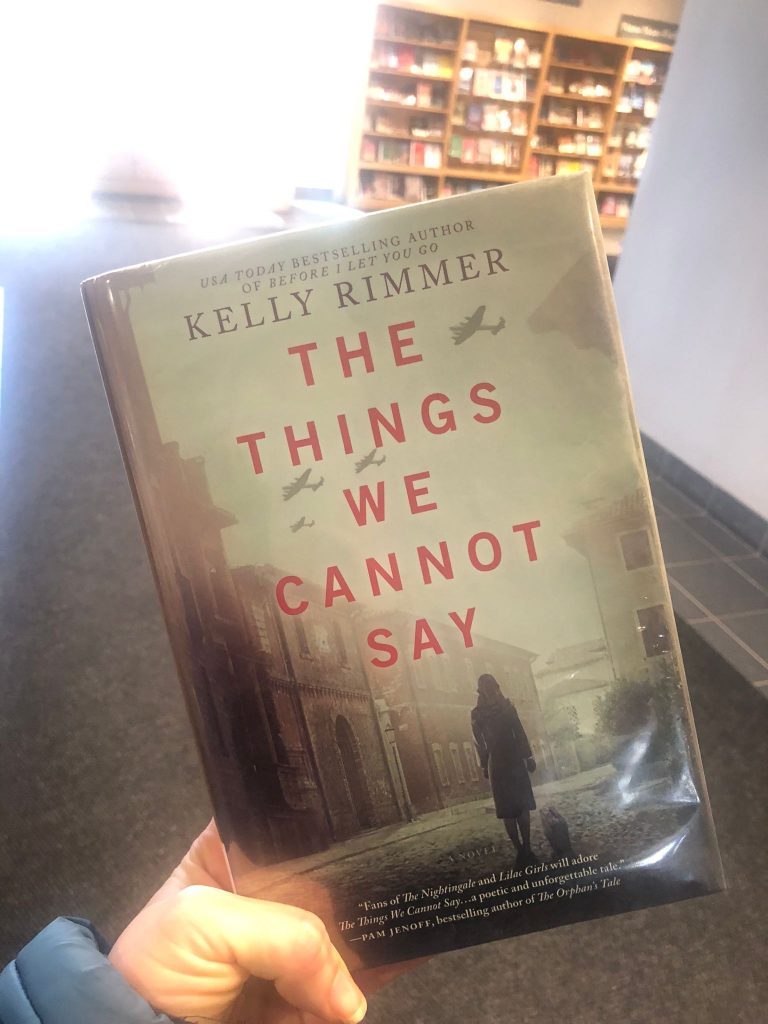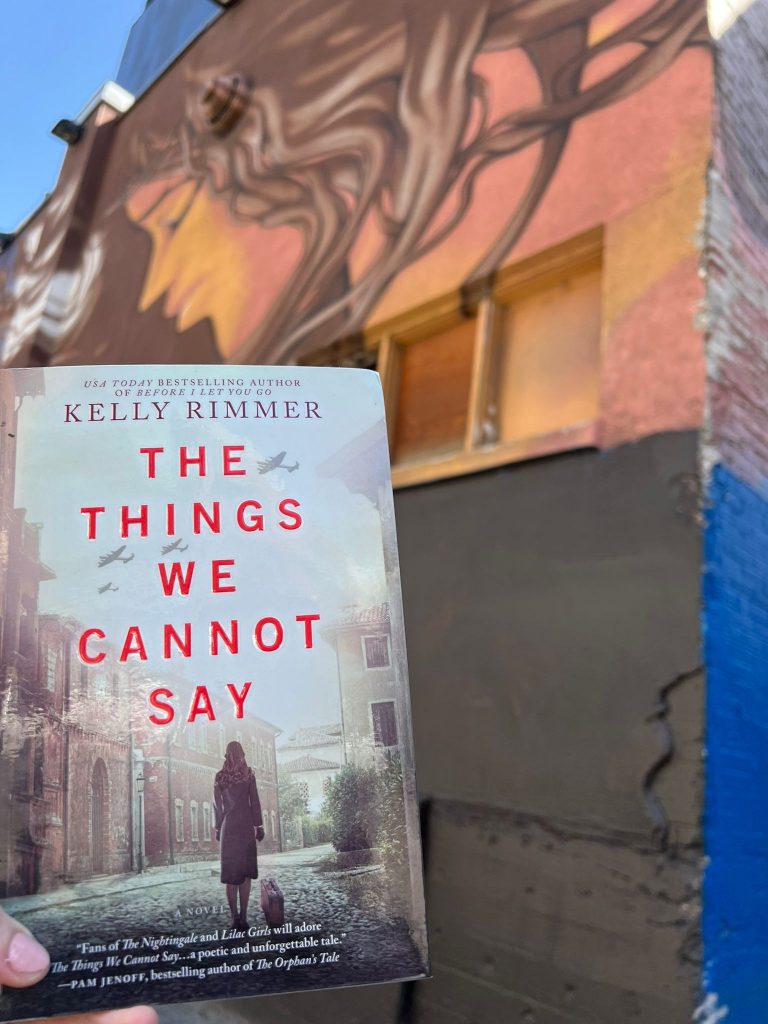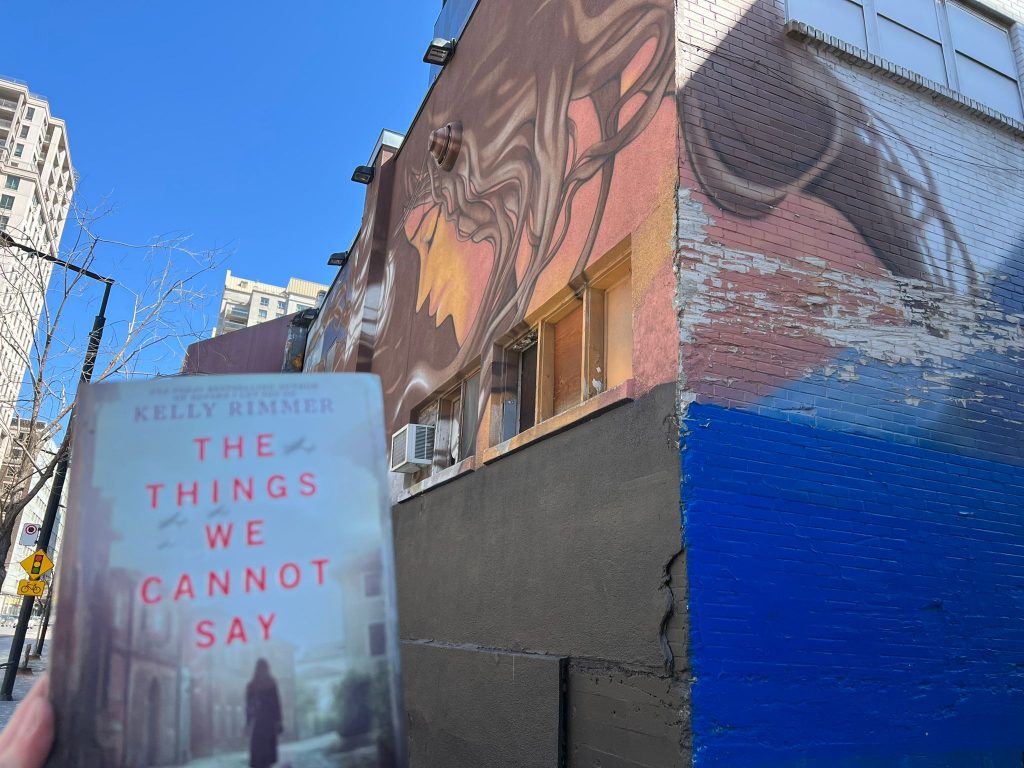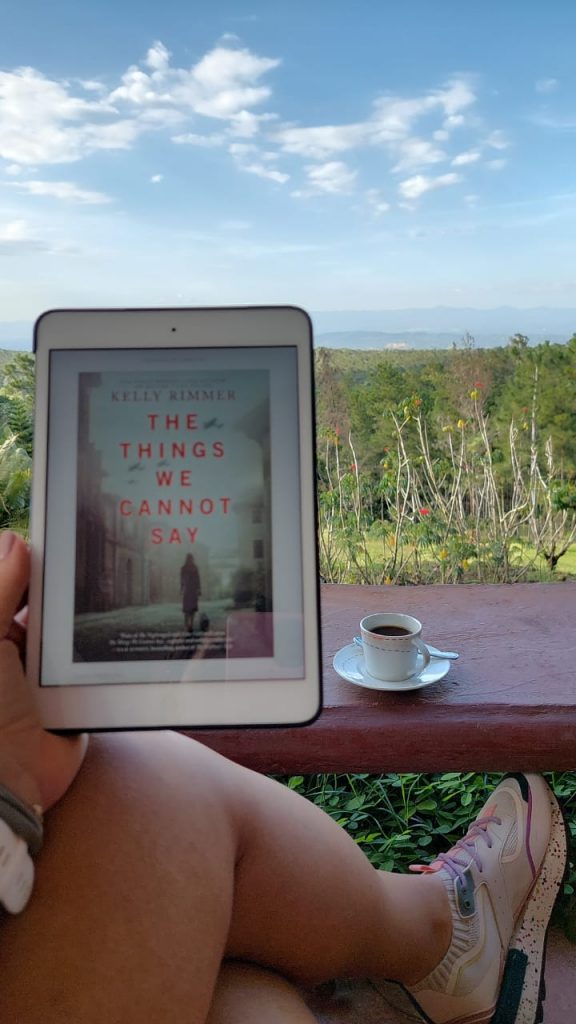
The Things We Cannot Say – Beautiful Story
This story got to us in so many levels, it is a beautiful story about love, family, hatred and pain.
April’s pick a story by Kellie Rimmer. – Publication date : March 19, 2019 – 466 pages – Moderated by Alba Veloz.
Synopsys: In 1942, Europe remains in the relentless grip of war. Just beyond the tents of the Russian refugee camp she calls home, a young woman speaks her wedding vows. It’s a decision that will alter her destiny…and it’s a lie that will remain buried until the next century.
Since she was nine years old, Alina Dziak knew she would marry her best friend, Tomasz. Now fifteen and engaged, Alina is unconcerned by reports of Nazi soldiers at the Polish border, believing her neighbors that they pose no real threat, and dreams instead of the day Tomasz returns from college in Warsaw so they can be married. But little by little, injustice by brutal injustice, the Nazi occupation takes hold, and Alina’s tiny rural village, its families, are divided by fear and hate. Then, as the fabric of their lives is slowly picked apart, Tomasz disappears. Where Alina used to measure time between visits from her beloved, now she measures the spaces between hope and despair, waiting for word from Tomasz and avoiding the attentions of the soldiers who patrol her parents’ farm. But for now, even deafening silence is preferable to grief.
Slipping between Nazi-occupied Poland and the frenetic pace of modern life, Kelly Rimmer creates an emotional and finely wrought narrative that weaves together two women’s stories into a tapestry of perseverance, loyalty, love and honor. The Things We Cannot Say is an unshakable reminder of the devastation when truth is silenced…and how it can take a lifetime to find our voice before we learn to trust it.
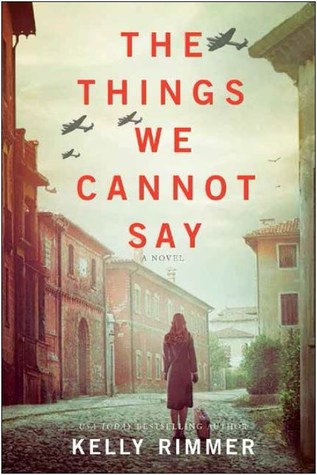
Book Summary
In 1939, Alina Dziak, a young woman from a small town in Poland, is in love with Tomasz Slaski, who leaves to study medicine in Warsaw. He promises to return and marry her, but the Nazi invasion of Poland soon separates them. When Tomasz finally returns, he reveals he was conscripted into the German army but escaped with the help of a Jewish doctor, Saul Weiss. Tomasz has been secretly helping Saul, his wife, and their baby daughter hide from the Nazis.
The Escape and a Fateful Switch
Alina and Tomasz renew their love. Tomasz plans for them to escape to the Russian zone while he delivers a canister of film to the Allies that shows the atrocities at Auschwitz. However, an informant tips off the Nazis, and Saul is forced to watch as his wife and daughter are executed. In a selfless act, Tomasz and Saul switch identity papers. Now traveling as Tomasz Slaski, Saul escorts Alina, who is carrying the film in a plaster cast, to the Russian military camp.
After months of waiting and discovering she is pregnant, Alina fears the social stigma of being an unmarried mother. To protect her, Saul marries her, now living under the false identity of Hanna Wisniewski. After delivering the film, they flee to England and eventually settle in America. They live as a married couple, raising their daughter Julita, who is born shortly after their arrival. Saul becomes a successful doctor, and they enjoy a deep, platonic friendship for over 50 years.
A Hidden Past Uncovered
Their granddaughter, Alice, grows up in a loving family, never knowing her grandfather’s true identity. Now an adult with her own family, Alice’s life is put on hold when her grandmother, now in her 90s, suffers a stroke. Using a voice device, her grandmother, affectionately called Babcia, sends Alice to Poland to uncover a family secret.
In Poland, with the help of Tomasz’s sister Emilia, Alice discovers the devastating truth: the man she knew as her grandfather, Tomasz Slaski, was actually Saul Weiss. Her biological grandfather, the true Tomasz, sacrificed himself by turning himself in to the Nazis to protect Alina and was executed.
Alice returns home to her grandmother with the bittersweet news. After her grandmother’s death, Alice and her family travel back to Poland to inter Saul and Alina’s ashes next to Tomasz’s grave, bringing their long-hidden story full circle.
Topics in the book
The Resilience of Love
The Thing We Cannot Say is a love story. The love between Alina Dziak and Tomasz Slaski, however, is not just love but rather love as it might be, as it should be, an elevated kind of powerful and resilient love that binds two hearts across more than 70 years of separation. In the opening pages, the love between the two Polish teenagers (Alina is only 15) seems like the stuff of fairy tales, a love that is immediately self-evident, unquestioned, and certain to collapse under its own irony. Their tender kisses are perfect moments of suspended animation. Alina gushes, “I was astounded by the love I felt for Tomasz, and that I could see that same desperate love mirrored in his eyes felt like a miracle” (25).
That naïve and tender love, however, is tested by harrowing circumstances as the fairy tale morphs into the horrors of the Nazi occupation. That love sustains Alina through the longing and loneliness of separation, and just thinking about their love infuses even the bleakest moments with warm consolation. That love only grows stronger when they are apart. “Our love,” Tomasz assures her, “is bigger than this war” (299). When Tomasz arranges to switch places with Saul, he sacrifices his own life to save the woman he loves. Indeed, it is the discovery of her grandmother’s grand love for a man who existed for decades only in memory that partly inspires Alice to recommit to her fragile marriage. The heartbreaking words of Tomasz’s last letter to Alina before he turns himself in to the Nazis sums up the love they shared: “The love I feel you has been the fire that fueled my desire to be a better man […] I won’t rest until you are back with me where you belong” (397).
Alice achieves that closing wish by making sure her grandmother’s ashes rest next to the man she loved. It beggars the clichés of throwaway greeting cards and lame wedding toasts: Love here actually is eternal. This love transcends the horrors of war, the atrocities of genocide, the agony of separation, and ultimately the boundaries of time itself. The two lovers find their way back to each other when at last they can rest in peace, together.
The Power of Hope
The story of Alina Dziak is a heroic story of the power of hope in a dark time. The novel asserts the dignity and integrity of the human will through the manifestation of Alina’s hope. When she wonders whether Tomasz has been killed when the Nazis occupy Warsaw, when she hides in the claustrophobic darkness of the farm’s cellar, when she disciplines herself to breathe when she and Saul Weiss hide in a produce crate, when she awaits Tomasz’s arrival at the Soviet-run Polish army camp, Alina clings to a kind of power that gives her the confidence not to surrender to her deepest fears. Tomasz will return to her, and she will not be destroyed by the Nazis. Alina draws on the strength of her family, her commitments to help her friends and neighbors, and her unconditional love for Tomasz, and she rises to the challenge of her conditions. She dares to hope.
Hope, that uncertain and unquantifiable notion that nothing can destroy the spirit, sustains Alina. She cannot not believe Tomasz will return; even decades later in Florida, she never entirely abandons the feeling that Tomasz somehow will return. Throughout the ordeal of the Nazi occupation, despite being separated from the man she loves, despite profound hunger and living with the uncertainty of whether this day might be her last, Alina endures. She withstands the emotional, spiritual, and physical crises caused by the Nazis. Hope is a curious emotion grounded in the flimsiest logic asserted against a mounting body of counterevidence. Hope is the special privilege of the survivor, those who engage circumstances and know (not believe) that things will get better. The novel argues that surrender to hopelessness, cynicism, and pessimism is easy, but transcending to resilient hope is the stuff of profound emotional strength. Although she is Catholic, Alina finds hope not in the comforting promises of her faith but in the certainty in her heart that what she is enduring, the indignities, the suffering, the anxieties, cannot defeat her. That “glimmer of hope” (138) sustains Alina and animates her story.
The Will to Survive
Alina survives the Nazi occupation of Poland. Hope is one thing, an emotion that can raise a flagging spirit, but actually facing the unrelenting demands of day-to-day, hour-to-hour survival introduces a stark level of brutal sacrifice and the willingness to do much with little despite overwhelming evidence that no effort, sacrifice, or courageous gesture can guarantee survival. Through love and hope, the novel offers themes that can direct and even elevate the daily lives of readers by reminding them to value the presence of significant others and to never concede conditions are as bad as they seem.
Still a teenager, Alina faces hunger; long hours hiding in the cellar without access to water or sunlight or fresh air, or even a bathroom; days without bathing and living in conditions that render any notion of hygiene ironic. A child, she must labor in the fields daily beyond her strength, all the while aware of the crematoria tower of the nearby extermination camp. Her family must accept the meager rations distributed by the occupation army, the indignities of life under their occupation. She must master anger and panic and turn her every negative emotion, every kneejerk reaction, toward the difficult commitment to survive another night, another hour. When Alina’s mother cautiously reveals the secret stock of provisions she has hidden in a basement, which not even Alina knew about, she does so despite the obvious: Should the Nazis discover the stash, she will be executed. The Poles heroically do what they must to survive, and as such, the novel becomes a testimony of a time and place in which the human will rose to fight despite impossible odds. The Polish underground, the elaborate plan to get the canister of film out, the network of supplies maintained by the Poles, all testify to the human spirit’s ability to endure and survive. In the end, that sustains Alina. “I had no power to change my lot,” she admits, “All I had was the breath in my lungs […] If I kept moving forward, I could survive until someone else changed my world” (92).
The Consolation of Family
In Alina and Alice’s parallel narratives, two widely different stories and two characters tested by widely different circumstances, but both characters learn the same inspirational message. In the end, family matters. Alina learns the value of her family suffering the indignities and brutalities of the Nazi occupation in war-torn Poland. Before the war, she took her parents for granted and even found their concern for her a bit annoying. She valued her immature sense of her own independence and resisted the idea of her vulnerability and her need for her family. During the occupation, she comes to understand her parents in a way that reveals their fierce and protective love for her. Her brothers’ sacrifice for her—they volunteer for assignment in the Nazi work camps so she can stay at home—redefines family for the young girl. Under the enormous strain of the occupation, Alina and her parents forge a common sensibility made strong by the oppression of the Nazi regime. Together they muster the strength to fight, the will to resist, and the energy to hope.
Alice Michaels, who struggles to handle two vastly different children with a husband who is all too willing to use work to avoid such complications, learns that same lesson. At the beginning, she sees herself as put upon, alone, forced to negotiate every day with two children with radically different needs and expectations of her. Her husband drifting away, she finds herself on the edge of anger and frustration, driven to long soaking baths with a bottle of wine. She is annoyed with the husband she vaguely remembers once loving. Conversations with both her children (and her mother, for that matter) quickly spiral into confrontation and the heated rhetoric of anger and blame. Her time in Poland, however, teaches her that her family can find its way to a dynamic, to a cooperation of interests and the comfortable reassurance of mutual respect and support. More important, Alice finds that her family does not need to suffocate her; rather, she can only express her best self through her commitment to others who need her in their lives. That experience renews Alice. In the end, family makes both Alina and Alice more compassionate, more understanding, and far stronger women.
About the author
Kelly Rimmer is the New York Times, Wall Street Journal, USA Today and worldwide bestselling author of contemporary and historical fiction, including The Secret Daughter and The Things We Cannot Say.
Kelly lives in rural Australia with her family and a whole menagerie of badly behaved animals. Her novels have been translated into more than 20 languages.
Buy the book here: The things we cannot say
Kindle version of the book: Kindle book
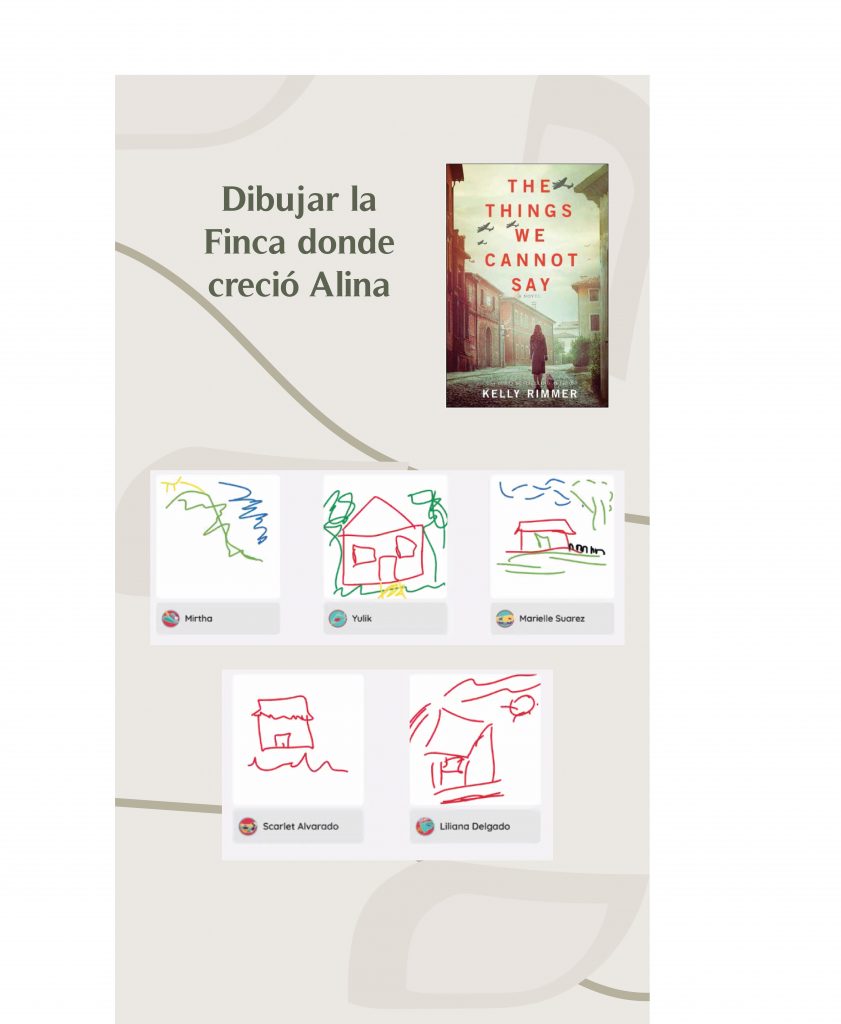
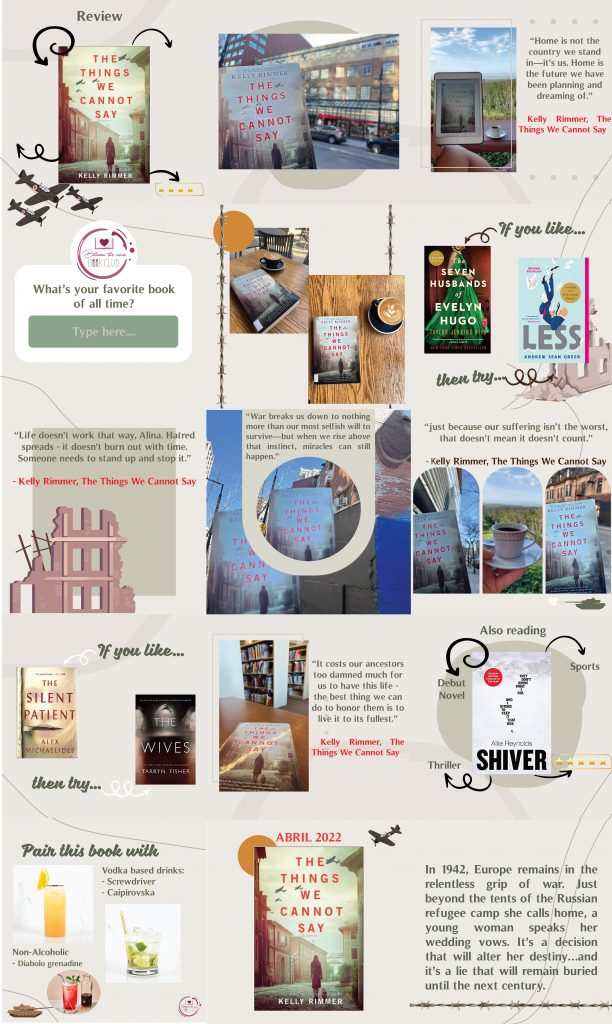
Character Analysis
Alina Dziak (Hanna Wisniewski Slaski)
Alina Dziak is the central character of this coming-of-age novel, evolving from a naive adolescent into a complex and heroic woman. At 15, her world is a “fairy tale” centered on her love for Tomasz. However, the Nazi occupation forces her to mature. Her love for Tomasz becomes a source of strength, enabling her to endure hardship and take selfless action, such as agreeing to deliver a film canister of Nazi atrocities. A pivotal moment occurs when she holds a Jewish baby, a “shattering epiphany” that she must actively oppose evil. This strength endures for nearly 70 years as she protects her family’s secret. Alina’s final act of courage is to seek out the man she truly loved before her death, a testament to her heroic spirit and unending patience.
Alice Michaels
Alice Michaels is a thirty-something stay-at-home mother who has lost her sense of self, overwhelmed by the demands of her family. Her life has been particularly challenging due to her son, Eddie, who is on the autism spectrum. She feels detached from her successful husband and gifted daughter, believing her sole purpose is to care for Eddie. Her grandmother’s request to go to Poland to unravel a family secret serves as a turning point. This journey allows Alice to realize that she can be more than just a caregiver and that a family is a dynamic network. In the end, she commits to writing a novel about her grandmother’s story, a significant emotional shift from the harried woman at the beginning of the book, revealing her own strength and loving heart.
Tomasz Slaski
Tomasz Slaski is a nearly flawless character, handsome, charming, and devoted to Alina. He is a doctor and a member of the Polish underground, selflessly working to save Jewish refugees. His life is defined by a single, self-perceived moral failure: his brief conscription into the Nazi army. This act haunts him, driving him to seek penance through every subsequent action. In his ultimate act of sacrifice, he trades his identity with Saul Weiss to ensure Alina’s safety and the delivery of the film. He believes that his suffering is a necessary consequence of his perceived moral failure, and he acts as the novel’s moral conscience in a world where morality no longer seems to exist.
Wade Michaels
Wade Michaels is initially portrayed as an insensitive, career-focused husband, largely seen through his wife Alice’s perspective. His work in nanotechnology, a field that deals with complex systems, contrasts with his inability to connect with his family, particularly his son Eddie. He is shown as distant and perpetually in a hurry, struggling to understand Eddie’s challenges. Alice’s trip to Poland provides Wade with the opportunity to step up. Although his first days as the sole caregiver are chaotic, he learns that family isn’t a problem to be solved but a challenge that requires patience and dedication. This is symbolized by a scene where he and Eddie are playing chess, with Wade listening to him through a voice app. Wade’s character evolution is a powerful moment of growth, as he reclaims his place in the family’s emotional dynamic.

Colleen Fever

The Maidens
You May Also Like

Pretty Little Wife
May 11, 2023
The Fragile Threads of Power
November 20, 2024

